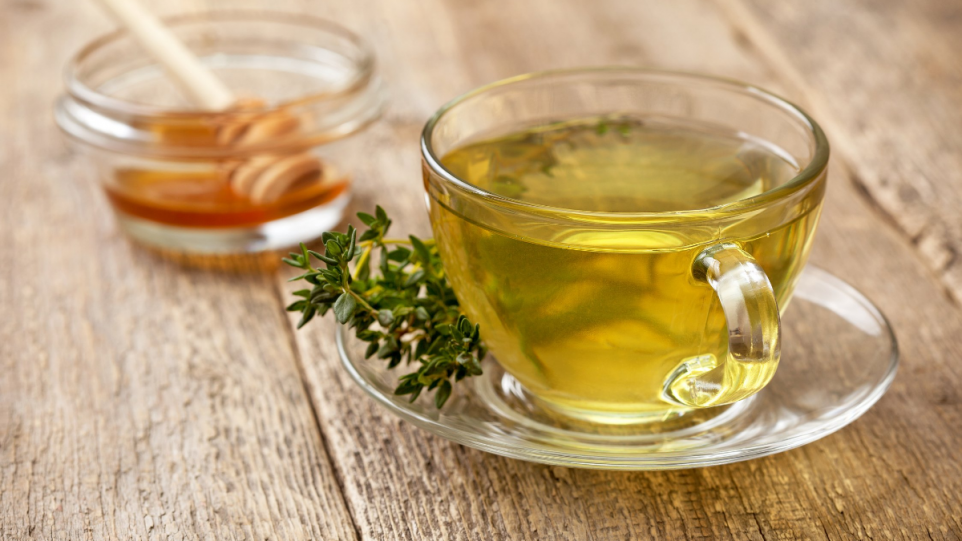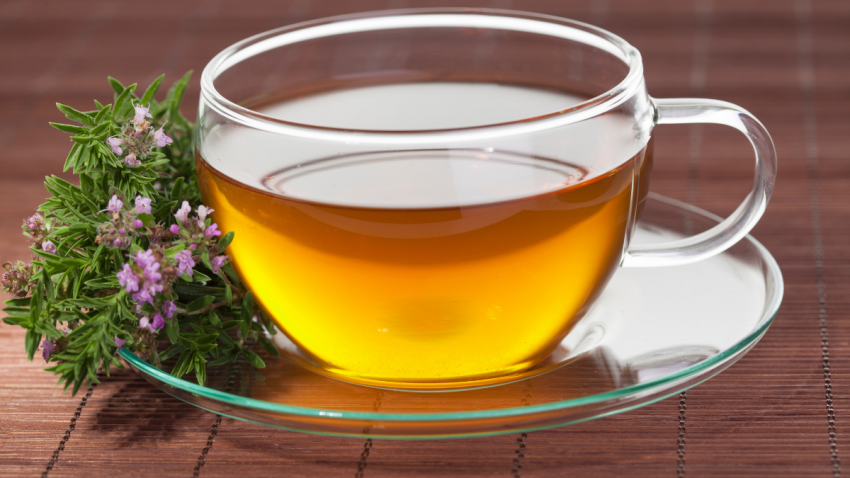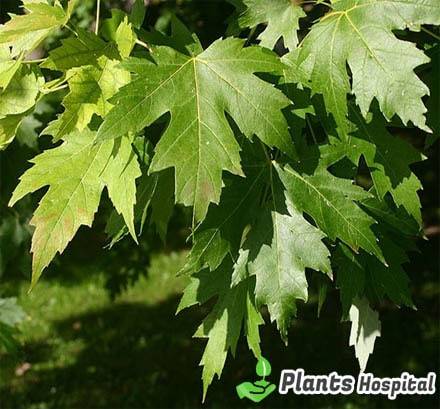Thyme tea has several incredible health benefits. First, this herb possesses a variety of qualities that benefit your health. So sit and read to learn about the tea’s surprising health benefits.
Thyme is an intense, shrubby herb with trailing green-gray leaves and a strong aroma and flavor. This herb is indigenous to the western Mediterranean but grows in drier, sunnier regions throughout Western Asia and southern Europe.
Although thyme comes in over sixty variants, Thymus vulgaris, or garden thyme, is the most widely used culinary species. Additionally, it is the most frequently used in historical recipes and remedies, particularly in and around ancient Greece, Rome, and Egypt.
Thyme not only adds instant flavor to cooking, but it also has many health benefits when consumed fresh or dried or steeped to make tea.
Thyme is a mint-family herb that contains a plethora of health benefits. It is effective against a variety of health problems. This herb has a plethora of applications. Additionally, thyme essential oil is frequently applied to the skin. This oil contains antimicrobial properties that may aid in the prevention of acne.
Another effective way to utilize it is to make thyme tea. Unfortunately, you cannot afford to overlook the potential benefits of sipping this tea. Instead, you owe it to yourself to try thyme tea and reap its numerous health benefits if you enjoy tea.
Table of Contents
Nutrition
Thyme has a pleasant aroma and is high in vitamin C, vitamin A, and B. Fresh thyme leaves contain 160 milligrams of vitamin C in a 100-gram serving. More reasonable serving size of 1 teaspoon contains 1.28 milligrams of vitamin C.
Additionally, thyme contains:
- Manganese
- Magnesium
- Zinc
- Potassium
- Vitamin
- Hematite
Nutrients per Serving
Thyme tea can be made with fresh or dried herbs. The nutrients per serving will vary slightly depending on the recipe used. There are the following nutrients contained in 1 teaspoon of fresh thyme leaves:
- 70 milligrams of sodium
- 40 milligrams of protein
- 196 milligrams of carbohydrate
- 112 milligrams dietary fiber
- 10 mg of Fat
- 0.80 kcal
As a point of reference, 1 teaspoon dried thyme leaves contains the following:
- 91 milligrams of protein
- 74 mg of Fa
- 639 milligrams of carbohydrate
- 550 milligrams sodium
- 370 milligrams of fiber
- 2.76 kilojoules
Thyme Tea – How to Prepare
You can easily prepare thyme as a tea to benefit from its health benefits. For example, you can use fresh thyme leaves or thyme powder to make your tea. Additionally, dried thyme can be used; however, strain the leaves from your drink to avoid unpleasant textures.

For fresh thyme leaves, steep several sprigs in a cup of boiling water for 5–8 minutes. If any leaves fall from the sprigs into the water, strain them before drinking.
To make powdered thyme, combine approximately 1 teaspoon powder with 1 cup boiling water. Ground thyme has a texture similar to matcha green tea powder, and stirring several times may be necessary to ensure thorough mixing.
THYME TEA’S HEALTH BENEFITS
This aromatic herb contributes more than flavor to your favorite dishes. Indeed, thyme essential oil is well-known for its antibacterial and antifungal properties and has been used to preserve food in the past.
Additionally, thyme contains some minerals and vitamins that are beneficial to the body’s health. Thyme is a good source of vitamin C, potassium, and manganese, necessary for bone development and blood clotting.
Other health benefits associated with thyme drinking and thyme tea include the following:
Every day, millions of people drink tea for its numerous health benefits. The top six are as follows:
1. Drinking thyme tea can assist in blood pressure control.
It may aid in the management of hypertension. Diet is critical in the management of hypertension. According to studies, drinking thyme tea can assist in managing hypertension. Even Ayurveda recommends drinking thyme tea to combat hypertension. Not only can thyme tea help control blood pressure, but it can also aid in cholesterol control.
2. Assist in the fight against menstrual discomfort
It is recommended to consume herbal teas to alleviate menstrual discomforts. For females, thyme tea can provide relief during your monthly cycle. Thyme tea contains antispasmodic properties that aid in pain and discomfort reduction.
3. May help in cough suppression
Thyme tea: This tea is highly effective in combating coughs and sore throats. This tea is used to treat coughs naturally. This tea is beneficial for various respiratory conditions, not just coughing. It aids in the destruction of bacterial infections, providing relief from colds, coughs, and sore throats. When you experience coughing symptoms, drink a hot cup of thyme tea.
4. Immunity booster
Thyme tea can assist in boosting immunity. Your immune system assists you in defending yourself against a variety of diseases. Vitamin C is critical for immune system enhancement. Thyme is high in vitamin C, which can help strengthen the immune system. Copper, iron, and magnesium are also present in this herb.
5. Reduction of Inflammation
Thymol, one of the essential oils in thyme, has been shown to inhibit cyclooxygenase-2, or COX-2, an enzyme involved in the body’s inflammatory response.
Carvacrol, another oil found in thyme, has a similar effect on inflammatory cytokines, signaling molecules produced by the body to promote inflammation. This oil may be able to assist in lowering it.
6. Assistance with respiration
Thyme is also beneficial for respiratory health, with some clinical studies indicating that it can be used to relieve coughs and chest congestion. While fresh thyme is best for this, the essential thyme oils found in thyme tea may also provide some of these benefits.
7. Gastrointestinal Health
Additionally, thyme can be taken to aid in digestion. Thyme contains antimicrobial properties that aid in reducing germs in food and can help improve the health of your gut bacteria and overall intestinal health. Additionally, this herb can increase appetite, promote healthy liver function, and increase the gastric mucus layers in the stomach, which help protect the stomach lining from acid.
8. Protection against cancer
According to a study published in the journal Natural Product Communications, thyme possesses unique cytotoxic properties, which may contribute significantly to colon and intestinal cancer protection. Apart from that, another study found that drinking thyme tea regularly reduces the risk of breast cancer in women. Therefore, you can avoid cancer by drinking this tea in this manner.
To summarize, thyme is a potent herb beneficial to one’s health. Thyme tea benefits the body in numerous ways. It is extremely simple to make and effectively aids in treating common health problems.
Thyme tea side effects
Consider the following:
Individuals allergic to thyme or related plants such as basil, oregano, sage, or lavender may exhibit adverse symptoms. These may include skin sensitivity if you contact thyme leaves or nausea, heartburn, diarrhea, and vomiting if you eat or drink thyme tea.
Thyme: Tea And Oil: Health Benefits, Uses, Side Effects and Warning
While fresh and dried thyme is generally safe to eat or drink as a refreshing tea, it cannot be substituted for thyme essential oil. Essential oils are highly concentrated and, if used undiluted, can be toxic.








